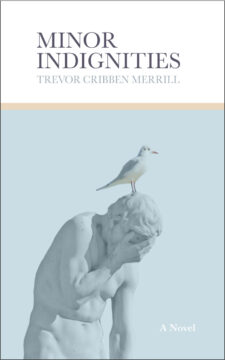Trevor Cribben Merrill at Genealogies of Modernity:
 In his essay Testaments Betrayed Milan Kundera recalls taking lessons in musical composition from a friend of his father’s, a Jewish composer who was at that time required to wear the yellow star. Seeing the young Kundera out of the tiny Prague flat where he camped out with others whose apartments had been confiscated, the composer suddenly stopped: “There are many surprisingly weak passages in Beethoven. But it is the weak passages that bring out the strong ones. It’s like a lawn—if it weren’t there, we couldn’t enjoy the beautiful tree growing on it.” Some time after sharing this insight with his pupil, the composer was transported to Theresienstadt. Kundera was never to forget the moment: “. . . that brief remark from my teacher of the time has haunted me all my life (I’ve defended it, I’ve fought it, I’ve never finished with it) . . .”
In his essay Testaments Betrayed Milan Kundera recalls taking lessons in musical composition from a friend of his father’s, a Jewish composer who was at that time required to wear the yellow star. Seeing the young Kundera out of the tiny Prague flat where he camped out with others whose apartments had been confiscated, the composer suddenly stopped: “There are many surprisingly weak passages in Beethoven. But it is the weak passages that bring out the strong ones. It’s like a lawn—if it weren’t there, we couldn’t enjoy the beautiful tree growing on it.” Some time after sharing this insight with his pupil, the composer was transported to Theresienstadt. Kundera was never to forget the moment: “. . . that brief remark from my teacher of the time has haunted me all my life (I’ve defended it, I’ve fought it, I’ve never finished with it) . . .”
Few of us will receive lessons in beauty under such circumstances. Yet anyone who has sought to make or comprehend art has probably come across at least a few similarly unforgettable statements—insights that, it seems, can never be exhausted. Some we accept unconditionally because they articulate an intuition we have had ourselves but were unable to express. Others we wrestle with for a long time, unwilling to give them our full assent yet equally unable to leave them behind.
more here (via The Book Haven).
